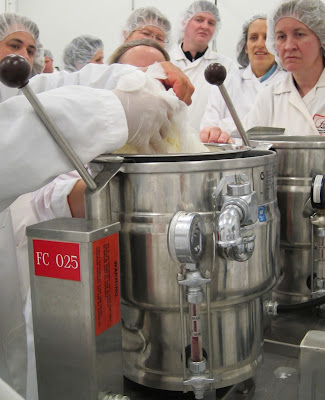Footnotes to a Conversation, April 19, 2021
“We live with mystery, but we don’t like the feeling. I think we should get used to it. We feel we have to know what things mean, to be on top of this and that. I don’t think it’s human, you know, to be that competent at life. That attitude is far from poetry.” – Mark Strand
Local News
Saskatoon’s Core Neighbourhood Youth Co-op is accepting orders for wooden garden boxes.
Jane’s Walk Saskatoon is organizing virtual and/or self-directed walking tours for Jane’s Walk 2021 on May 1.
Bread
A depression and a dictatorship in Portugal shaped its bread, transforming local grains and loaves to a nutritionless industrialized product. “Just as it is intertwined with Portugal’s political and economic history, bread has also mapped human progress and it survives as we survive. Bread can be as fragile as our own democracies, as Portugal’s grains have proven. I only hope that after years of austerity, the country looks towards a brighter future, full of much better bread.”
Travel
The new Inuit Art Centre at the Winnipeg Art Gallery “houses 14,000 sculptures, prints, drawings and textile art created by Inuit artists from across the Canadian Arctic. In addition, nearly 7,400 artworks are on loan from the Government of Nunavut.”
And a quote for those of us who are impatient to start travelling again – I found it particularly apt.
“Oh God, are there so many of them in our land! Students who can’t be happy until they’ve graduated, servicemen who can’t be happy until they are discharged, single folks who can’t be happy until they’ve found a mate, workers who can’t be happy until they’ve retired, adolescents who aren’t happy until they’re grown, ill people who aren’t happy until they’re well, failures who aren’t happy until they succeed, restless who can’t wait until they get out of town, and in most cases, vice versa, people waiting, waiting for the world to begin.” – Tom Robbins
April is National Poetry Month in the United States, bringing with it four poems about birds. I particularly enjoyed the ones about the sharp-shinned hawk (“No longer endangered, it has rebounded, one bright strand in the story of time”) and the hummingbird (“A blur in the periphery, like the mind if the mind were airborne”).
Writers & Robots
As a writer, I’m staggered by the idea that I could be replaced by a computer or robot. I pride myself on my ability to analyze information, decide what is important (and why), and pull it all together in a logical sequence. My goal is always to share information in the hope that by doing so I can bring about change or influence our society and culture.
“So what kind of writing is the human kind? The elaborate and literary? Will the focus of teaching writing in the future be in creating purple prose so swollen with complexity that the sentences stick out like a sore, undeniably human, thumb?
“McKnight doesn’t think so. She says that in a world of AI text, the skills that students need ‘will be much more aligned with what we would describe as a process writing approach, drafting, editing, collaborating, sharing and developing those kinds of soft skills that are going to be the skills that are useful in the future.’”
Photos are from a boat cruise in Lyon in April 2019.
Footnotes to a Conversation is a weekly Monday feature covering an assortment of topics that I’ve come across in the preceding week – books, art, travel, food, and whatever else strikes my fancy. If you share my love of nature, I suggest you also read EcoFriendly Sask that I publish in collaboration with my brother, Andrew.






Comments